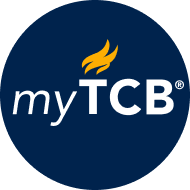


Members of The Conference Board get exclusive access to the full range of products and services that deliver Trusted Insights for What's Ahead ® including webcasts, publications, data and analysis, plus discounts to conferences and events.
22 November 2022 / Report
According to our survey of more than 2,000 US respondents conducted jointly with The Harris Poll, 60 percent of respondents—and 58 percent of people with $100,000+ incomes—report a declining propensity to buy sustainable products because of inflation. An even larger share (75 percent) believe people’s interest in buying sustainable products will wane in an economic decline.
According to our survey of more than 2,000 US respondents conducted jointly with The Harris Poll, 60 percent of respondents—and 58 percent of people with $100,000+ incomes—report a declining propensity to buy sustainable products because of inflation. An even larger share (75 percent) believe people’s interest in buying sustainable products will wane in an economic decline.
Head of Research, Marketing & Communications Cente…
The Conference Board

myTCB® Members get exclusive access to webcasts, publications, data and analysis, plus discounts to events.
You already have an account with The Conference Board.
Please try to login in with your email or click here if you have forgotten your password.

